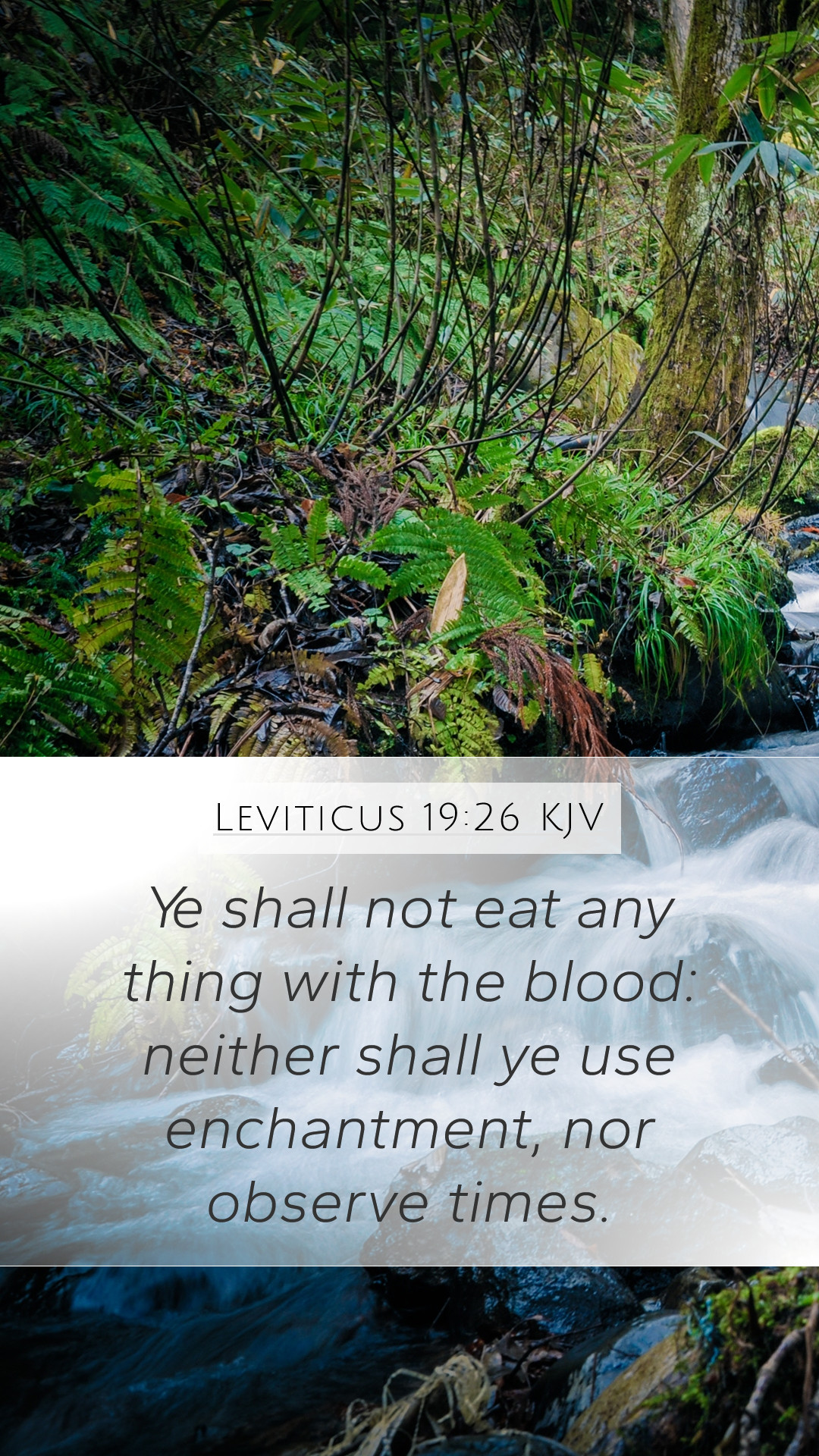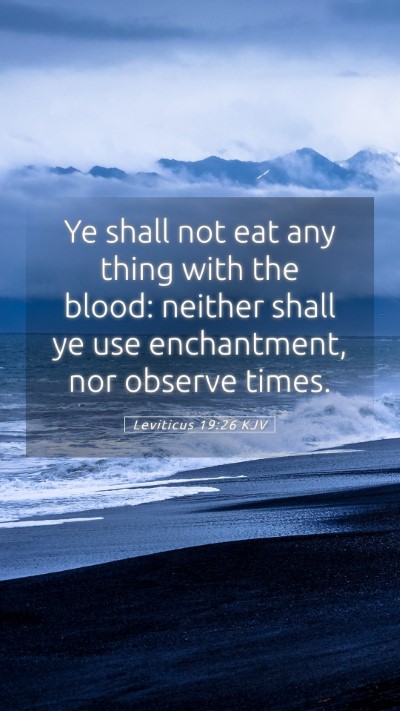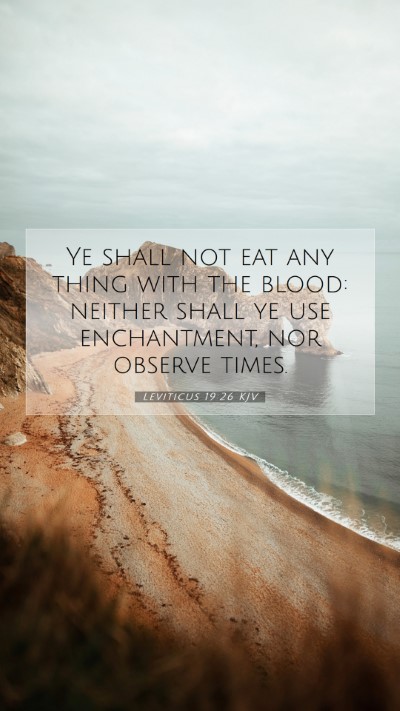Understanding Leviticus 19:26
Bible Verse: Leviticus 19:26 says, “You shall not eat any flesh with the blood still in it. You shall not practice divination or soothsaying.”
This verse is a part of the Holiness Code in Leviticus, which emphasizes the rituals of the Israelites in maintaining their covenant relationship with God. The verse encompasses two main prohibitions - against consuming blood and against practicing divination.
Section 1: Prohibition of Blood Consumption
The first part of the verse, “You shall not eat any flesh with the blood still in it,” is a directive rooted in the understanding of blood as sacred. Biblical commentators like Matthew Henry highlight that blood represents life, and consuming it was viewed as disrespectful to God’s creation. Albert Barnes adds that the life of the flesh is in the blood, and thus, it is not merely a dietary law but a moral and spiritual teaching about respecting life and God’s commandments.
Spiritual Significance
- Matthew Henry: Emphasizes the sanctity of blood; it represents atonement.
- Adam Clarke: Suggests that this prohibition highlights the seriousness of life and death.
- Albert Barnes: Connects this prohibition to the necessity of atonement for sin; blood symbolizes redemption.
Section 2: Divination and Soothsaying
The second part, “You shall not practice divination or soothsaying,” stands against the cultural practices of surrounding nations that sought knowledge of the future through forbidden means. Matthew Henry remarks that these practices stem from a lack of faith in God’s sovereignty. Albert Barnes states that engaging in such practices demonstrates distrust in God’s guidance.
Contextual Importance
- Adam Clarke: Notes that reliance on mysticism undermines true worship and faith.
- Matthew Henry: Highlights that believers should seek God’s wisdom directly rather than through occult means.
- Albert Barnes: Warns against the temptation to seek shortcuts to divine knowledge.
Related Themes and Connections
This verse connects deeply with themes of holiness, purification, and the importance of obeying God's laws. Adam Clarke draws parallels to other Scriptures that discuss the sanctity of life, like Genesis 9:4, where God forbids the consumption of blood.
Cross References
- Genesis 9:4: “But you must not eat meat that has its lifeblood still in it.”
- Deuteronomy 18:10-12: A list of prohibited occult practices.
- Leviticus 17:10-14: Further instructions on the sanctity of blood.
Application of Leviticus 19:26
In modern contexts, this verse challenges believers to reflect on their practices, urging them to avoid reliance on superstitions or harmful habits that detract from their relationship with God. Albert Barnes encourages readers to seek genuine understanding through Scripture and prayer instead of turning to worldly wisdom.
Conclusion
Leviticus 19:26 serves as a reminder of God's call for His people to live set apart lives, characterized by reverence for life and a steadfast faith that seeks His wisdom above all else. This verse encapsulates vital bible study insights relevant to our understanding of holiness and divine guidance.


